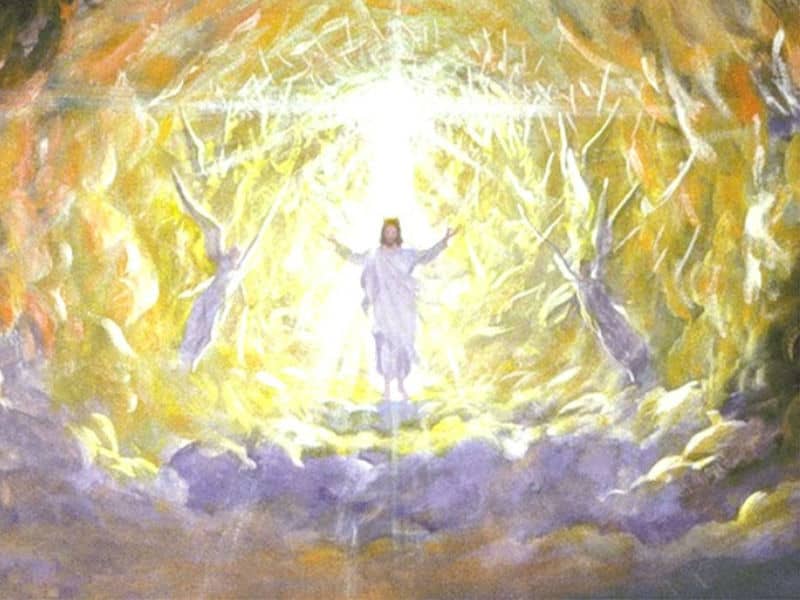Thus began an August 1995 article in the Minaret, a leading Islamic magazine in the United States, emphasizing the point that Muslims, too, love and revere the city of Jerusalem. In recent times, however, love of the Hold City, a sacred site to Judaism, Christianity and Islam, has resulted in neither peace nor prosperity.
Through the centuries, Jerusalem was under the jurisdiction of numerous regimes, from the Canaanites through the ancient Hebrew kings and the Islamic caliphate, the Crusaders, the Ottomans and the British, to the modern era. The sanctity of both the land and its people are inseparable in Jerusalem. The city never lost its spiritual value to the people of the three monotheistic religions, regardless of the religious or secular backgrounds of those who ruled over it.
To the world's 1 billion Muslims, Jerusalem (Al-Quds or "The Holy" in Arabic) has a spiritual status that transcends political considerations, one that defies current Israeli attempts at a de facto solution of the city's "ownership" by continued building and annexation.
For Muslims as for Christians and Jews, the special status of the small Old City, which is less than a square mile in area, begins with Abraham himself, venerated in all three faiths as the patriarch and pioneer of monotheism. According to the Book of Genesis, it was on Mt. Moriah in Jerusalem where Abraham was ready to sacrifice his son in obedience to the order of God. This act of complete submission is remembered and celebrated by Muslims at the end of the annual pilgrimage to Mecca at Islam's most significant religious holiday, Eid al-Adha, the Holiday of Sacrifice.
This same hallowed ground marks the site of Prophet Muhammad's mystical Night Journey, in which, among other things, the five daily prayers were established as a pillar of Islam. The Quran (which Muslims believe was revealed via Gabriel to Muhammad, and thus is directly the word of God) records this event in the opening of Sura (Chapter) 17, the Ascension: "Glory be to him, who carries his servant by night from the Holy Mosque to the Furthest Mosque (Al-Aqusa), the precincts of which have blessed, that we might show him some of our signs."
Thus Jerusalem was the first direction of prayer for Muslims, and its spiritual status was underscored by the prophet's advice that every Muslim should undertake a religious journey to one of three places: the Holy Mosque of Mecca, the Prophet's Mosque of Medina and Al-Aqusa in Jerusalem.
Islam also joins Judaism and Christianity in their reverence for the site of the Second Temple, of which only the Western Wall remains.
The Via Dolorosa, revered by Christians as the route along which Jesus carried his cross to Golgotha, ends at the Church of the Holy Sepulcher, believed to be the site of Jesus' burial and resurrection.
David and Solomon are honored in Islam as prophets of God. Jesus is likewise revered in Islam as God's prophet and "his word."
It was with this deep respect that Omar, the second caliph (ruler) of Islam, guaranteed the freedom of worship to all faiths when the Muslims entered Jerusalem in 634. When invited by the Christian patriarch Sophronius to say his prayers at the Church of the Holy Sepulcher, Caliph Omar declined and prayed outside its gates, stating that if he prayed within, later generations of Muslims might take this action as an excuse to build a mosque on the site of the church. Shortly thereafter, the Muslim Ummayad dynasty, recognizing the importance of Jerusalem for all faiths, annulled the Byzantine ban on Jewish settlements in the city. By the late 7th century, a thriving Jewish community had become firmly reestablished in Jerusalem.
The Crusaders invaded the Holy Land and captured Jerusalem from the Muslims in the 11th century. But it was not the Arabs who succeeded in liberating the city later from European warriors. A Kurd named Saladin in the 12th century was able to reclaim the Dome of the Rock Mosque, considered "the jewel of the signet ring of Islam" to the Muslim world.
On the occasion of the Holiday of Sacrifice, we Muslims stress the importance of Jerusalem to us, as to Christians and Jews. We will not allow political rhetoric, this time aimed at justifying Israel's policy of annexing Jerusalem, to rewrite our spiritual history and to dispossess us of our claim to the Holy City. Abraham, David, Solomon, Jesus and Muhammad-we revere all of them as messengers of God. Whoever stakes a claim to Jerusalem on the basis of them stakes ours as well.

